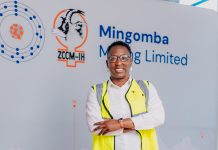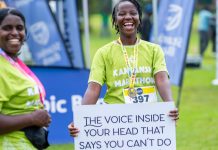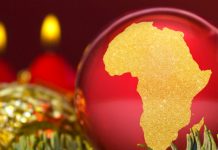If you find yourself at Solwezi’s Kyawama Market around 7am on a Saturday morning, you might catch a glimpse of ten young runners whizzing down the road towards their clubhouse at Kansanshi Foundation Institute, cheers of encouragement announcing their arrival. Blink, and you’ll miss them.
None of these runners – nine young men and a formidable female runner called Elizabeth Mukoloma – would have called themselves a serious runner a few years ago. Today they’re members of Kansanshi’s elite running team, and are training their way to becoming some of Zambia’s fastest athletes. On 27 May 2023, at the inaugural Kansanshi Marathon event, they all had an opportunity to shine.
Elizabeth Mukoloma finished the event’s half marathon (21.1km) in an incredible one hour and twenty minutes, irresistibly close to Zambia’s national record for this distance. She’s been hovering within a minute of the current record for the last couple of years, and her sights are firmly set on breaking it – not in a year or two, but “now-now”, she says.
Running is one of several sports that’s supported by the Kansanshi Sports Foundation, which recently started a running academy that provides coached running programs in eight secondary schools around Solwezi. Who are the coaches? None other than the ten young athletes in Kansanshi’s elite running team. They’re paid an allowance for their work coaching talented young learners and, in some cases, are also paid by the schools where they coach. “This is the ideal scenario,” says Ryan Ellis, Kansanshi Sports Foundation’s Coordinator, “as it enables them to fly the nest, so to speak, and build careers in running.”
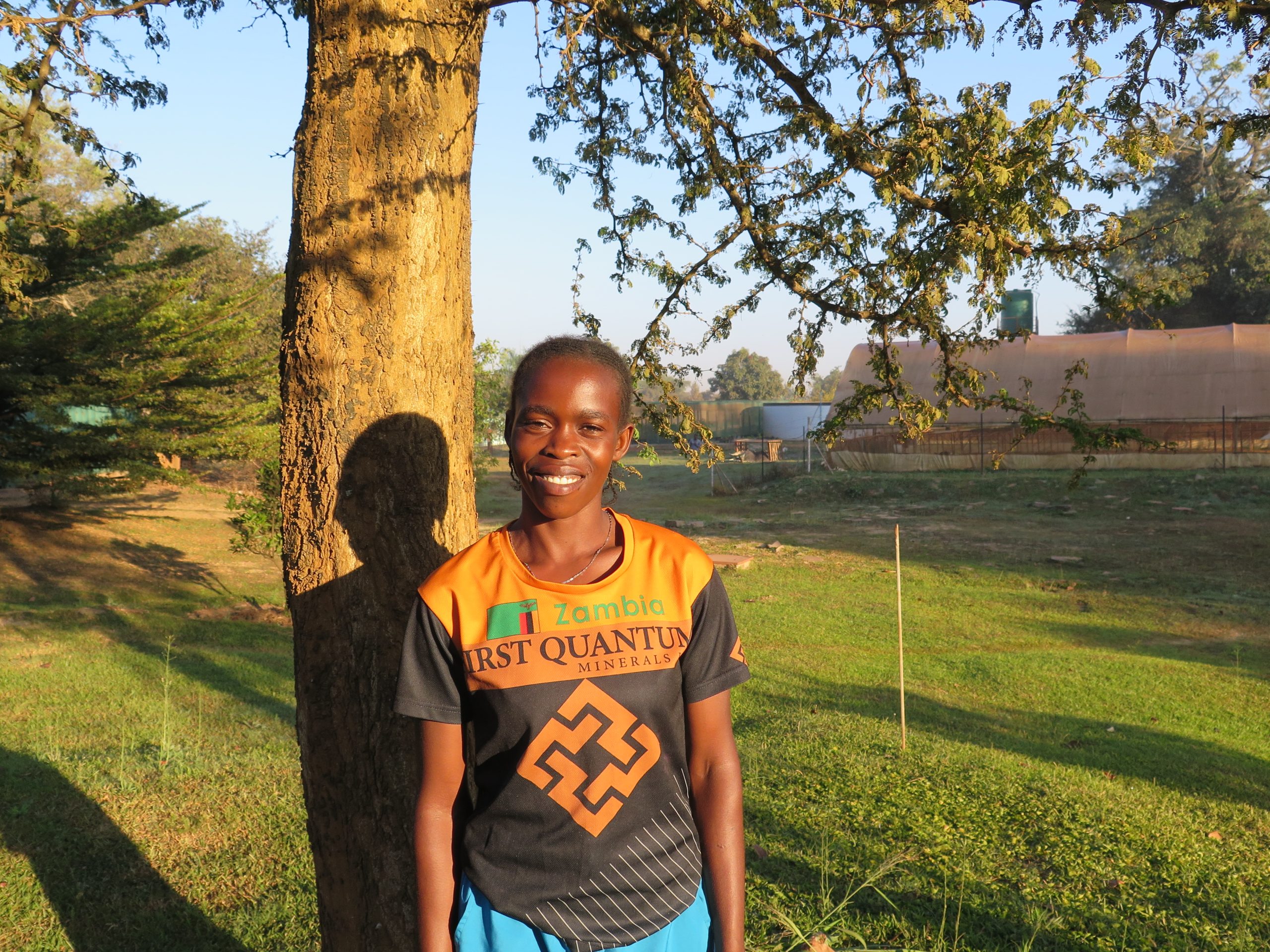
The first (but not the last) Kansanshi Marathon
The decision to organise and sponsor the Kansanshi Marathon – in partnership with Zambia’s business community – is part and parcel of FQM’s Kansanshi Mining Plc’s long-term commitment to investing in sport and wellness in the community.
But the event ended up doing far more than encouraging running within the local community. It was a roaring success and the largest sporting event that North-Western Province has ever seen, attracting runners from Kenya, South Africa, Zimbabwe, and all over Zambia. In total, over a thousand runners took to the streets of Solwezi to run a choice of distances including a full marathon (42.2km), half marathon (21.1km), a 10km race, and a 5km ‘fun run’.
For Collins Mimbi, another of Kansanshi’s elite runners, participating in a race alongside international athletes was a dream come true. “Everyone in our team has been eager to take part in some of these international races, but we weren’t yet ready to compete at that level. The Kansanshi Marathon was an opportunity to run with professionals – the very same people that have been inspiring us – and to learn from them. One very good runner from South Africa saw me on the track and said, ‘Hey brother, stop panicking.’ Another guy from Kenya spotted me and told me to ‘Puuuush!’ Even after the race, we interacted, we exchanged numbers.”
But the event ended up doing far more than encouraging running within the local community. It was a roaring success and the largest sporting event that North-Western Province has ever seen.
But nobody – including the organisers – had imagined that the event would attract so many participants from far afield. The fact that the event was accredited by the World Athletics Association (WAA), which enables runners to use their finish times to qualify for events anywhere in the world, was definitely a contributing factor. And the cumulative prize money of just over K577,000 – the largest prize purse in Zambian athletics history – didn’t hurt either.
The mine’s General Manager Anthony Mukutuma, who took part in the 5km fun run, confirmed that the Kansanshi Marathon will be an annual event, aimed at promoting Solwezi’s citizens’ health and wellbeing. Solwezi’s mayor, Remmy Kalepa, who participated in the 10km race, pointed out the economic benefits of hosting events like this, to which the buzzing town and its fully-booked hotels and lodges were testament.
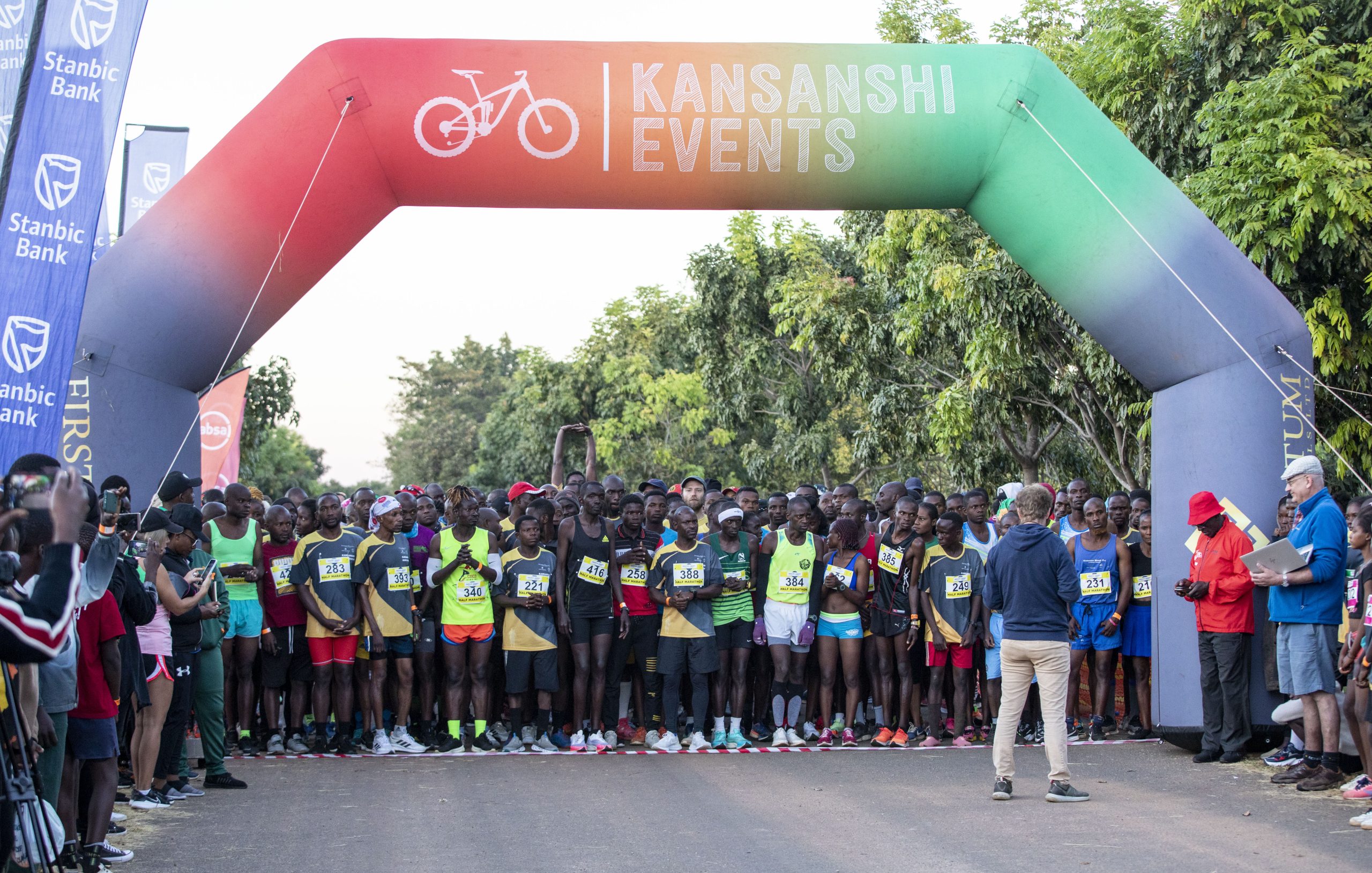
Far more than a marathon
The story behind the Kansanshi Marathon is about much more than the event itself, or full hotels, or a buoyant Solwezi. In some ways, the event is a symbol of how far running has already come in the town, and its immense potential for growth: as a sport, as a healthy recreational activity, and, even, a set of keys to new opportunities for promising young athletes.
Twenty-three-year-old Jackson Kashiya, the fastest endurance runner among Kansanshi’s elites, was first ‘spotted’ at the Trident Fun Run in 2018, where he won the 15km race by a whole fifteen minutes. “Ryan saw me running,” remembers Jackson. “He wanted to give me a chance, and that’s when I joined the Kansanshi team. I didn’t have any idea I could do anything like this. And so far, I’m in the top three in Zambia for 21 kilometres.”
Running has taught Jackson about making sacrifices, he says. “When I wake up, I think about why I’m doing this. I’m not doing this for my friend, or anyone else… I’m doing this for my life, and my future. If I sleep until 8am, who is going to do this for me?”
“He wanted to give me a chance, and that’s when I joined the Kansanshi team. I didn’t have any idea I could do anything like this. And so far, I’m in the top three in Zambia for 21 kilometres.”
Twenty-nine-year-old Collins only started running at 26, and he’s made incredible strides since joining the elite team. “I was running at 5:30 per kilometre, and once I’d completed the intensive training program for beginners, I’d reduced my pace to between 4:00 and 4:30 per kilometre. I started running longer distances – up to 21 kilometres – and even took part in an event in Lusaka where I came second. I’ve now reduced my pace: to 3:30 minutes a kilometre. I can run comfortably at that pace without any trouble or panic.”
Has training at this level had an impact on other areas of his life? “So many things have changed,” says Collins. “My job is very physical at times – I’m a rock engineer at Kansanshi – and running has really helped me to be consistent with my workouts. Before I joined the running team, I couldn’t sit in the office for 10 hours straight without feeling fatigued – even when I wasn’t doing anything physical. But now, I’ve reached the point where I still feel fresh after work.”
And, for Collins, feeling “fresh” after work means having enough energy for a coaching session at one of the schools before he runs five or more kilometres home. Running between home and work every day (except on Fridays, the team’s rest day) is Collins’ solution to finding time to clock his weekly mileage, while juggling a full-time job and part-time studies in mining engineering. It’s an extremely ambitious mix, but he says that running itself has helped him to rise to the challenge.
“When I’m doing a long run or running up a very big hill, I usually reach a point when I get tired, and I feel like I can’t go on. And you hear that voice saying: ‘I don’t think I can manage.’ There are also times when I’m working or studying and I reach a point where I don’t feel I can carry on. But then something else comes into your mind, saying: ‘Hey, come on, keep going until you finish the race’. And, just like that, you keep going until you’re done. I’m applying the same principles that I’ve learned through running in my day-to-day life.”
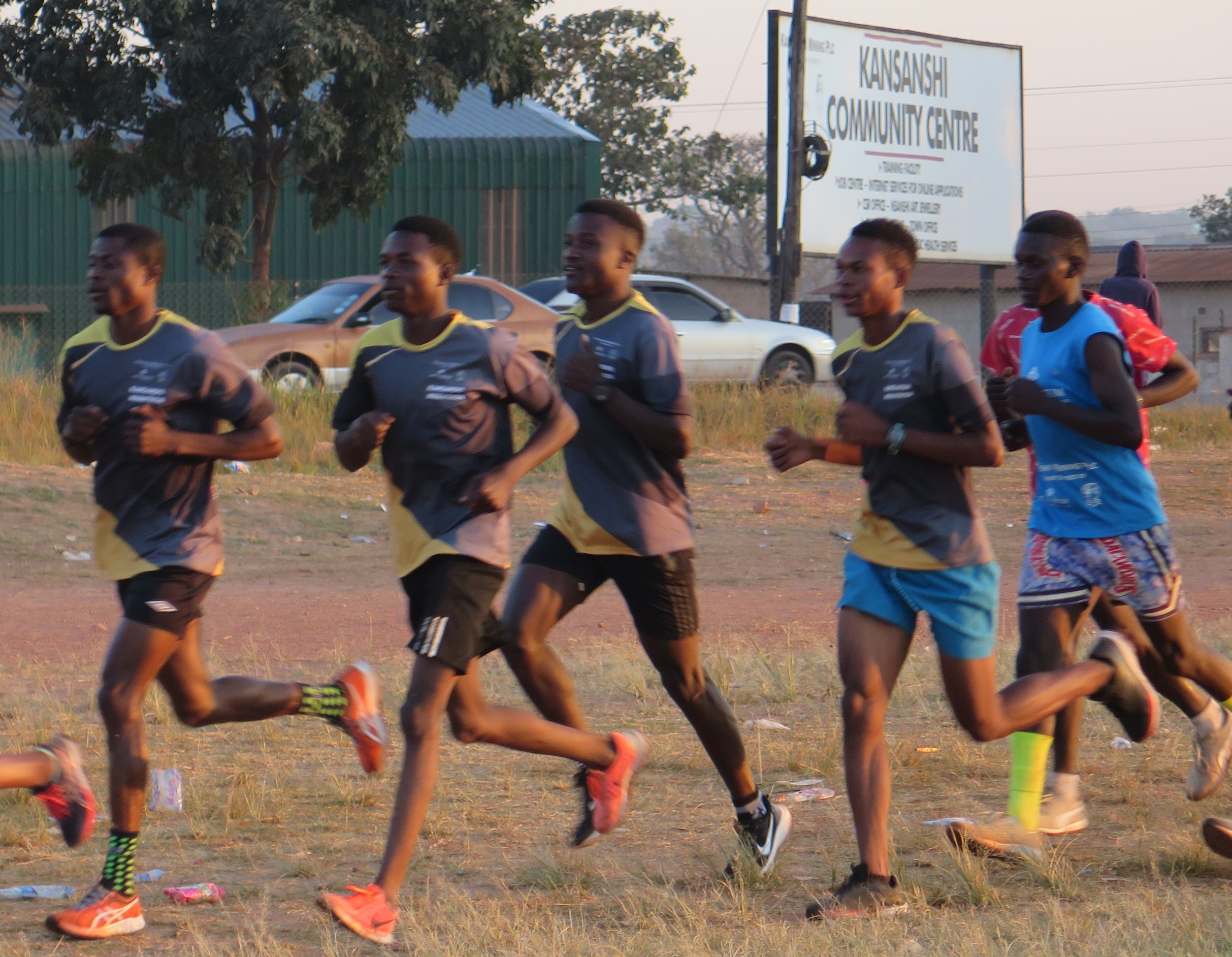
Bigger starting lines on the horizon
Supporting runners like Collins in achieving their dreams of competing in the professional arena is one of the goals behind Kansanshi’s running program. But Collins and his teammates are part of a much bigger picture – what Ryan describes as the “core” of the program – in which the positive effects of running radiate outwards, transforming the district bit by bit into a place where people choose to be active and live healthier lives that make them less susceptible to lifestyle-related diseases.
“We’ve been gradually transitioning Kansanshi Sports Foundation’s focus towards running because it’s the most accessible sport for people to take part in,” says Ryan. It’s true: running is something that almost any able-bodied person can take up immediately. You don’t need equipment; you don’t even need teammates.
“It’s the extended impact that we’re pursuing with this program,” says Ryan. “Each of our elite runners is coaching around 30 kids – so, roughly 280 teenage runners in total – and we hope to expand this program with funds raised from the marathon. Then you have the families of those kids, who are motivated by what their child is doing. A few of the learners are now on track to get university scholarships because when you add athletic ability to solid academics, it makes them much better candidates. Holding a marathon is a part of that wider impact – because it’s not just about the marathon on the day, but the six months of the year that people feel motivated to train.”
Collins has had no fewer than 20 of his colleagues approach him and ask to train together on weekends. “I’ve become something like a mentor to a number of people,” he says. “People see you running and ask: ‘Why do you do this every day, how do you manage?’ So we meet up and run together. I’ve seen three or four social running clubs that were directly born out of our team. We’re really getting there in terms of influencing the community.”
See also: Kickstarting a positive cycle








